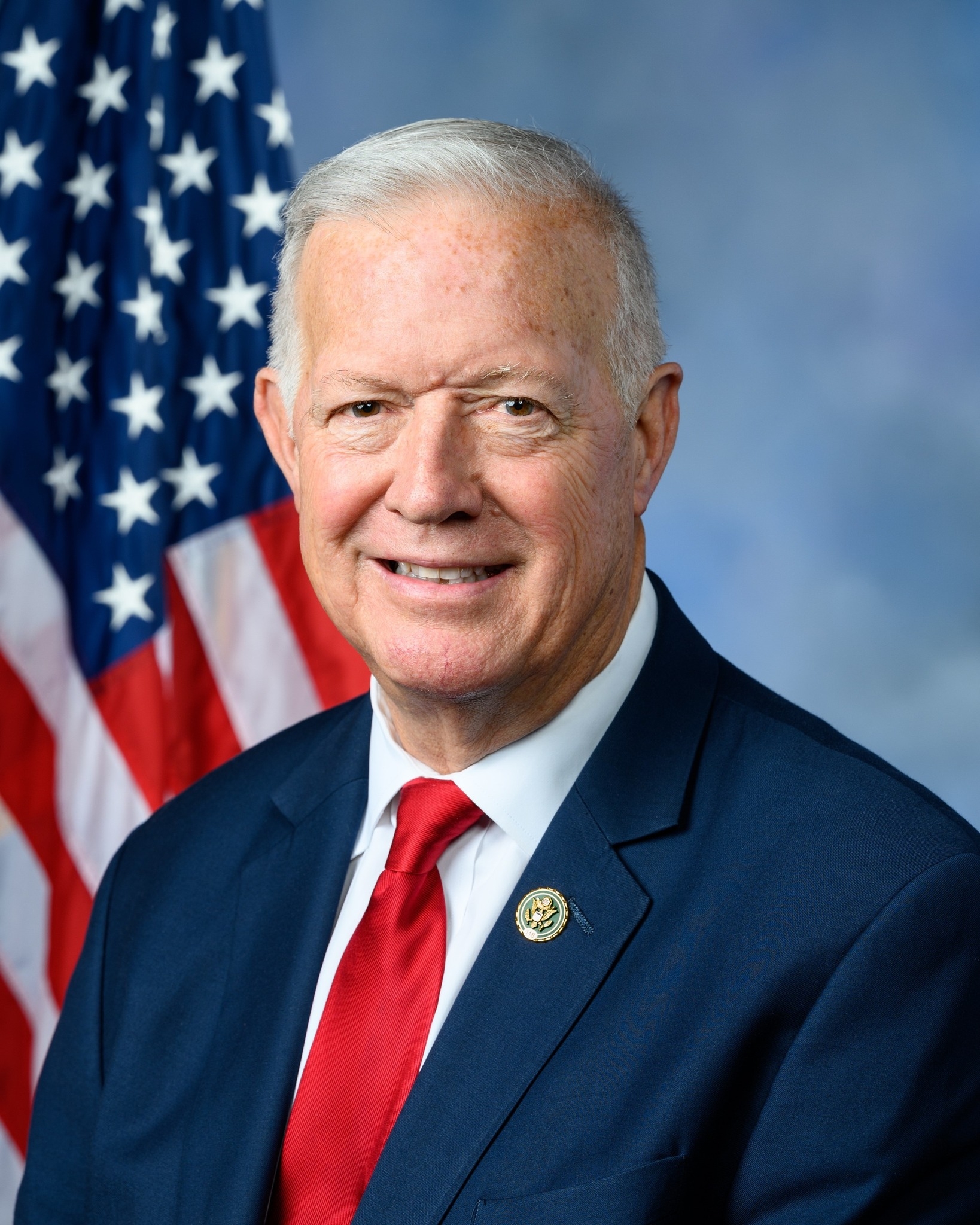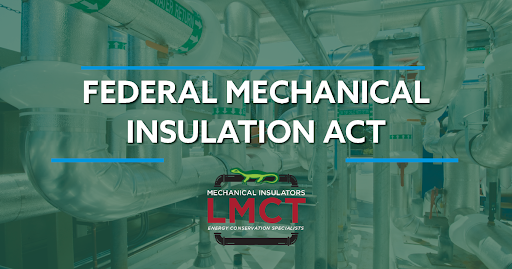The Mechanical Insulators Labor Management Cooperative Trust (LMCT) is proud to announce the introduction of the bipartisan Federal Mechanical Insulation Act of 2023 (FMIA) by Rep. Randy Weber (R-Texas) and Rep. Linda Sánchez (D-Calif.) to the House of Representatives on July 14.
Mechanical insulation provides large-scale and long-term energy efficiency, emissions reductions, cost savings and safety benefits at manufacturing facilities, power plants, refineries, hospitals, universities, and government buildings while creating thousands of American jobs, with the manufacturing of nearly all Mechanical Insulation taking place in the U.S.
The FMIA, House Resolution 4663, will advance federal energy efficiencies, save tax dollars and reduce energy loss and emissions for the approximately 350,000 federal buildings in the U.S. It will also add an important audit metric for regulators to include when assessing federal buildings’ measure of Mechanical Insulation efficiencies.
 “For 35 years, I owned and operated an air conditioning company, and I understand the importance of strategic federal energy conservation and efficiency measures,” said Rep. Weber. “This bill is not only common sense but a win for the nation’s energy preservation and will lower the burden on taxpayers forking over their hard-earned dollars to power federal buildings.
“For 35 years, I owned and operated an air conditioning company, and I understand the importance of strategic federal energy conservation and efficiency measures,” said Rep. Weber. “This bill is not only common sense but a win for the nation’s energy preservation and will lower the burden on taxpayers forking over their hard-earned dollars to power federal buildings.
“I am proud to introduce this legislation, and I look forward to working with my colleagues on the Energy and Commerce Committee to ensure that a properly trained and qualified workforce is used to make the necessary improvements to federal Mechanical Insulation,” he added.
 “As we continue efforts to bring down energy costs, reduce emissions, and protect our environment, energy efficiency has become a leading issue across the country,” said Rep. Sanchez. “Still, Mechanical Insulation – a practical and helpful solution – is often overlooked.
“As we continue efforts to bring down energy costs, reduce emissions, and protect our environment, energy efficiency has become a leading issue across the country,” said Rep. Sanchez. “Still, Mechanical Insulation – a practical and helpful solution – is often overlooked.
“Mechanical insulation improves working environments, lowers energy costs and increases the asset value of a building,” she said. “It accomplishes all of this while creating tens of thousands of American jobs. This bill provides meaningful directives to the Department of Energy to ensure Mechanical Insulation is a focus of the statutory audits of federal buildings where appropriate. I am proud to support this legislation and build on the important work we started last Congress to promote sensible federal energy conservation and workforce measures.”
According to the Government Accounting Office (GAO), the federal government is the single largest energy consumer in the country consuming more than 344 trillion btu of energy and 119 gallons of water in Fiscal Year 2021. Federal agencies are required by statute to conduct energy and water use evaluations and audits of federal facilities every four years to identify energy or water savings efficiency measures.
Currently, the National Energy Conservation Policy Act, part of the National Energy Act 1978, sets out an array of measures intended to promote energy conservation in all three sectors of U.S. energy use – buildings, industry, and transport.
Section 432 of the Energy Independence and Security Act of 2007 (EISA) makes changes to Section 543 of the National Energy Conservation Policy Act (NECPA) and creates a statutory requirement for federal agencies to conduct energy and water use evaluations, which include energy audits, of federal buildings.
While Section 432 of EISA does not define “comprehensive energy and water evaluations,” Department of Energy guidance provides some guidelines for audits as part of these evaluations. Therefore, this legislation would clarify that Mechanical Insulation energy audits qualify under comprehensive energy and water evaluations.
In recognition of the important role that Mechanical Insulation plays in lowering operating expenses, reducing energy loss and decreasing emissions, the legislation makes the following specific changes to portions of the EISA:
- Defines “Mechanical Insulation property” as materials, facings and accessory products that are part of a mechanical system and that reduce energy loss from that mechanical system, thereby allowing for the inclusion of these items as qualifying energy and water efficiency measures.
- Expands the definition of “energy and water evaluations” to include identification of energy- and water-saving measures (including installation of Mechanical Insulation property, if applicable).
This FMIA is supported by the LMCT, International Association of Heat and Frost Insulators and Allied Workers, North America’s Building Trades Unions and the National Union Insulation Contractors Alliance.
Pete R. Ielmini, the Executive Director of the Mechanical Insulators Labor Management Cooperative Trust, thanked both Reps. Weber and Sanchez for introducing the legislation into the House.
“This is just the first step for this legislation,” he said. “It was huge to have bipartisan support as we help make the U.S. government more energy efficient.”
IAFIAW General President Terrence M. Larkin believes the FMIA shows the type of political cooperation needed to bring awareness to the value of Mechanical Insulation as an effective energy-efficient technology that needs to be utilized in all buildings.
“The Federal Mechanical Insulation Act is needed to bring awareness to the value of Mechanical Insulation as an effective energy-efficient technology that needs to be utilized in all federal buildings,” said Larkin. “It will not only increase the energy efficiency of federal buildings and reduce greenhouse gas emissions, but it will also create thousands of jobs, including jobs for members of our Union. I thank Rep. Linda Sanchez and Rep. Randy Weber for their support and for introducing the bill. The International supports this legislation, and we urge our members to take action to help ensure its passage.”
For more information about the value of Mechanical Insulation, please contact the LMCT.
